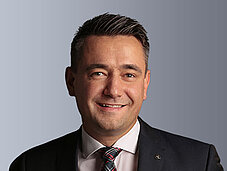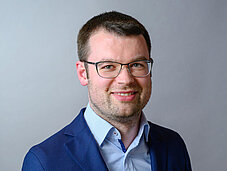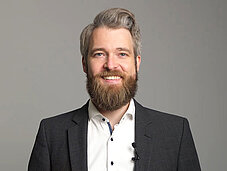
Intensive Workshop: Structural Mechanics
Analysis Planning + Exchange of Experience = Safety in Everyday Life

A must-have for all structural mechanics: After this workshop, you will look at your models with different eyes - guaranteed. This training is offered as a 4-day course.
Duration
4 days
Prerequisites
Basic knowledge of Ansys Mechanical, Professional experience
Software used
Ansys Mechanical
- Analysis planning for a structured approach to simulation projects
- Deepening expertise in structural-mechanical simulation
- Application of knowledge in interactive workshops
- Exchange of experiences with like-minded individuals and network expansion
Description
You are familiar with terms like contact stiffness and submodeling technique, but when looking at your models, you question whether they are correctly constructed. Perhaps you're working solo and missing the exchange with others? Then this is the right place for you.
This course is about practicing engineering daily routines through practical tasks. A highlight is the systematic planning of each workshop day using an analysis plan, which is very valuable for estimating the effort of future simulation projects. From the step file to the final result: here you go through the entire process with other participants - together. By the end, you will be able to justify your simulation settings. This will help you to successfully tackle even unknown tasks in the future.
Prerequisites for this course are knowledge of nonlinear structural mechanics in Ansys. You can check if you are well-prepared for this intensive workshop with our online competence check free of charge.
Note: Start of the intensive workshop on day 1 at 11.00 am.
Detailed agenda for this 4-day training
Day 1
01 Arrival
- This slot is reserved for the participants' arrival.
02 Get Together
- Getting to know the participants
- Overview of the workshop week's schedule
- Discussion of the entrance test results
- Clarification of prior knowledge
03 Focus of the Day: Analysis Planning
- Exchange of experiences on previous approaches to simulation tasks
- What should one consider before the analysis?
- What should be kept in mind during the simulation?
- What steps follow after the simulation?
04 Planning of Simulation Tasks
- Introduction of the sample analysis plan for the intensive workshop
- Application of the analysis plan in group work on engineering tasks such as a soil compactor
- Discussion of the developed analysis plans in the group
Day 2
05 Focus of the Day: Model Building
- Geometry simplifications and application of various element types
- Modeling the effective stiffness of components
- Connection options and their areas of application
- Assessment of commonly used boundary conditions
06 Workshop Task: Hydraulic Clamp
- Planning the simulation with the sample analysis plan
- Clarification of missing information for the simulation task
- Start of task processing in pairs
07 Processing of the Workshop Task
- Continuation of task processing in pairs
- Joint root cause analysis and problem-solving during task processing
- Presentation of individual aspects of model building by the participants
08 Evaluation of the Workshop Day
- End of the processing phase and presentation of results by the participants
- Evaluation of participant models in terms of accuracy and performance
- Group discussion on everyday model-building problems of the participants
Day 3
09 Focus of the Day: Strength Analyses
- Evaluation criteria for different types of tasks
- Causes and handling of singularities
- Tools for conducting mesh studies
- Other relevant numerical parameters
10 Workshop Task: Gearbox Housing
- Planning the simulation with the sample analysis plan
- Clarification of missing information for the simulation task
- Start of task processing in pairs
11 Processing of the Workshop Task
- Continuation of task processing in pairs
- Joint analysis of causes and problem-solving during task processing
- Presentation of the meshing strategy by the participants
12 Evaluation of the Workshop Day
- End of the processing phase and presentation of results by the participants
- Comparison of identified hotspots in the global model and evaluation after mesh refinement
- Discussion on the impact of different modeling techniques
- Closing discussion on peculiarities in the definition of submodels
Day 4
13 Focus of the Day: Nonlinearities
- Important aspects of contact modeling
- Representation of the hyperelastic behavior of O-rings
- Modeling of metal plasticity for forming processes
- Analysis settings for robust convergence behavior
14 Workshop Task: Forming of a Fitting
- Planning the simulation with the sample analysis plan
- Clarification of missing information for the simulation task
- Start of task processing in pairs
15 Processing of the Workshop Task
- Continuation of task processing in pairs
- Joint analysis of causes and problem-solving during task processing
- Presentation of the calibrated material models and analysis settings by the participants
16 Evaluation of the Workshop Day
- End of the processing phase and presentation of results by the participants
- Evaluation of the simulation quality regarding forming force and tightness
- Comparison of the performance and robustness of the participant models
- Closing discussion on typical convergence problems in the participants' daily work
Your Trainers

Dr.-Ing. Hendrik Donner

Dr. sc. ETH Manfred Maurer

Alexander Nolte

Dr.-Ing. Martin Seitz
Placement in the CADFEM Learning Pathway
Participant data
Additional information
Commentary
Whether eLearning, classroom courses, live online training or customized workshops - together we identify the best option for you.
Do you have questions on the workshop?
If you book through your university, you will receive a 50% discount on the stated fee on training courses and eLearning courses.
For more information on the validity and how booking with the code ACADEMIC50 works, please visit our page on training for academic users.
Straight after you sign up, an automatic confirmation of receipt will be sent to the email addresses you provided. Once you have successfully verified the data you provided, you will receive your personalized sign-up confirmation, containing further information on course fees, the billing address, etc., by email within two to three working days.
As soon as the minimum number of attendees has been reached, you will receive a final training confirmation containing further information. If you have booked an on-site training, we recommend that you wait until you have received this final confirmation before booking your travel and accommodation.
If the minimum number of attendees is not reached, we reserve the right to cancel the training seven days before it is due to start at the latest. We are happy to inform you on changing your booking to an alternative date. Please note that we accept no liability for hotel or travel bookings that attendees have already made.
Training places will generally be allocated based on the order in which attendees sign up. For this reason, we always recommend booking for your desired date as early as possible.
As long as a coures still has free places, it can be booked.
The 1st workshop day starts at 11:00 am to allow you a stress-free arrival. The following workshop days usually start at 9:00 am and end at 5:00 pm of the respective local time. The actual course times will be stated in the booking confirmation. Please note that, depending on the training host, there may be a possible time shift between your and the provider's local time. Therefore all local times are provided with the valid time shift to Greenwich Mean Time (GMT).
CADFEM trainings & eLearnings focus on imparting new knowledge for solving simulation tasks with Ansys software. In addition to the training of software skills by means of exercises, basic knowledge is refreshed and the practical context is established.
The CADFEM intensive workshops build on this knowledge. Here you and the other participants with suitable prior knowledge come together and solve practical complex tasks and thus intensify your knowledge in the field. The exchange of experience between the participants is central, so that you learn from each other. This ensures that you can transfer your knowledge to new, unfamiliar problems.
Even though you will gain a lot of knowledge, the focus of an intensive workshop is not on imparting fundamentally unknown knowledge. In this respect, you typically do not take home a pile of slides, but your notes, the workshop examples you have solved and the experiences of the other participants.
The voluntary competence check for the intensive workshops is an aid for you to check for yourself whether you have the appropriate prior knowledge for successful participation. At the same time, we aim to achieve a uniform level of knowledge among the participants to enable an exchange of experience on an equal footing. If you are unsure whether you have the necessary prior knowledge after the initial check, please contact us and we will recommend suitable trainings and eLearning courses.




